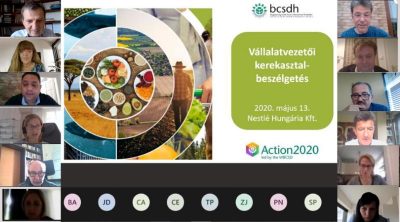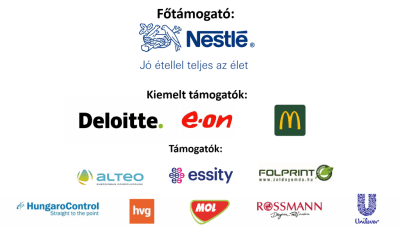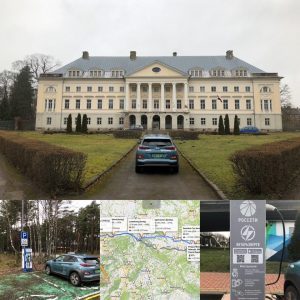Today on World Environment Day, the World Business Council for Sustainable Development (WBCSD) released its new climate action roadmap to help companies reach net-zero carbon emissions before 2050.
Geneva, 5 June 2020: SOS 1.5: The road to a resilient, zero-carbon carbon future provides companies with a step-by-step framework and key actions to start and advance their journey to net-zero emissions – critical to keeping the world at a safe operating space for people and planet.
The severity of climate change is already a crushing reality for many people around the world. But it’s the COVID-19 pandemic, which has brought devastation to millions of people that has delivered the whole world a stark reminder of our vulnerability to systemic risk. The COVID-19 crisis has shown us that the world cannot afford to return to a pre-pandemic normal. We have no choice. We must build resilience against all the interconnected crises we face, and the biggest of all remains the climate emergency.
Business has the responsibility to lead the charge to net-zero emissions before 2050 – and they know it. Today also marks the launch of the Climate Ambition Alliance’s Race to Zero campaign: a coalition of leaders from countries, businesses, cities, regions, investors and civil society – all committed to achieving net-zero emissions by 2050 at the very latest.
Raising the bar for climate ambition across the economy, this year’s World Environment Day shows that the real economy is moving to net-zero. But it’s not happening fast enough. Business needs to work together across sectors and value chains to pair their climate targets and pledges with science-based, transformative climate action in line with the 1.5°C goal of the Paris Agreement.
Framework to accelerate a company’s journey to net-zero
WBCSD’s new science-based action roadmap for companies of all sizes and sectors aligns with the science and allows companies to decarbonize to net-zero carbon emissions before 2050. Developed with WBCSD member companies and the Boston Consulting Group, our framework provides six key steps and 16 actions which companies at any stage in the journey can follow to accelerate their journey to net-zero.
SOS 1.5 key steps for companies:
- Ground ambition in purpose
- Understand climate risks and opportunities
- Set decarbonization milestones and targets
- Build a climate program in line with company strategy
- Mobilize resources broadly to deliver impact
- Engage, disclose and communicate climate action
Business has the responsibility to keep the world within a safe-operating space of 1.5°C: creating green jobs, delivering economic growth and building a more resilient society. All companies must align with the science and implement climate action plans to reach net-zero before 2050.
SOS 1.5 supports all business commitments and initiatives to achieve the 1.5°C goal and provides a framework for companies to deliver and implement climate action to net-zero.
“To protect the employees, customers and the societies they serve and do no harm, business must act now – at scale—to accelerate the transition to a net-zero economy where economic growth is decoupled from carbon and more than nine billion people are able to live well, within the limits of the planet by no later than 2050. It’s more important than ever that business starts to invest and deploy their solutions, especially now in an economic recession from COVID-19” said María Mendiluce, – Managing Director, Climate & Energy, WBCSD.
“Business has the responsibility to accelerate our transition to a net-zero economy and we need to act now. SOS 1.5 is an exciting venture for businesses at all stages of their climate journey to commit to the science and design and implement their action plan to net-zero. Beyond individual journeys, companies leading on climate action need to work together across sectors and value chains to scale the investments and innovations we need to decarbonize the economy. Unilever are happy to be part of SOS 1.5: bringing companies together to tackle the biggest barriers and speed up our transition to a fairer, low-carbon world” said Alan Jope – CEO, Unilever.
“Aligning business investments and strategy with a 1.5 °C scenario is essential to building a green recovery which creates sustainable jobs and leads to a more efficient, resilient and healthier world. SOS 1.5 provides companies with a platform and framework to start and progress their journey to net-zero faster: to collaborate and overcome the biggest challenges to scaling up investments in low-carbon solutions to accelerate our transition to a climate-neutral economy said Carlos Sallé – Vice-president of Energy Policies and Climate Change, Iberdrola.
“Shell is very pleased to be part of SOS 1.5 and excited about its launch today. SOS 1.5 will support businesses like ours define their roadmaps to reach net-zero emissions by 2050 through helping to bring companies together to collaborate on sectoral decarbonization and develop credible carbon sinks to enable the system change to keep the world within a safe-operating space of 1.5°C. No company can reach net-zero alone. SOS 1.5 accelerates the business path to net-zero by forging collaborations to overcome barriers” said Harry Brekelmans – Projects & Technology Director, Royal Dutch Shell.
“Climate momentum cannot be slowed down by the COVID health and economic crisis. Today more than ever it is clear that E,S and G go hand in hand: we need both socially and environmentally friendly stimuli and investments in a transparent and cooperative world. SOS 1.5 is a plan of action for those who are committed to contribute to net-zero, whether they are starting their journey or already well advanced. It is time now to move from pledges to actions and really decrease emissions without the support of another COVID crisis said Michel Fredeau and Esben Hegnsholt – BCG Climate & Environment.
![]()







